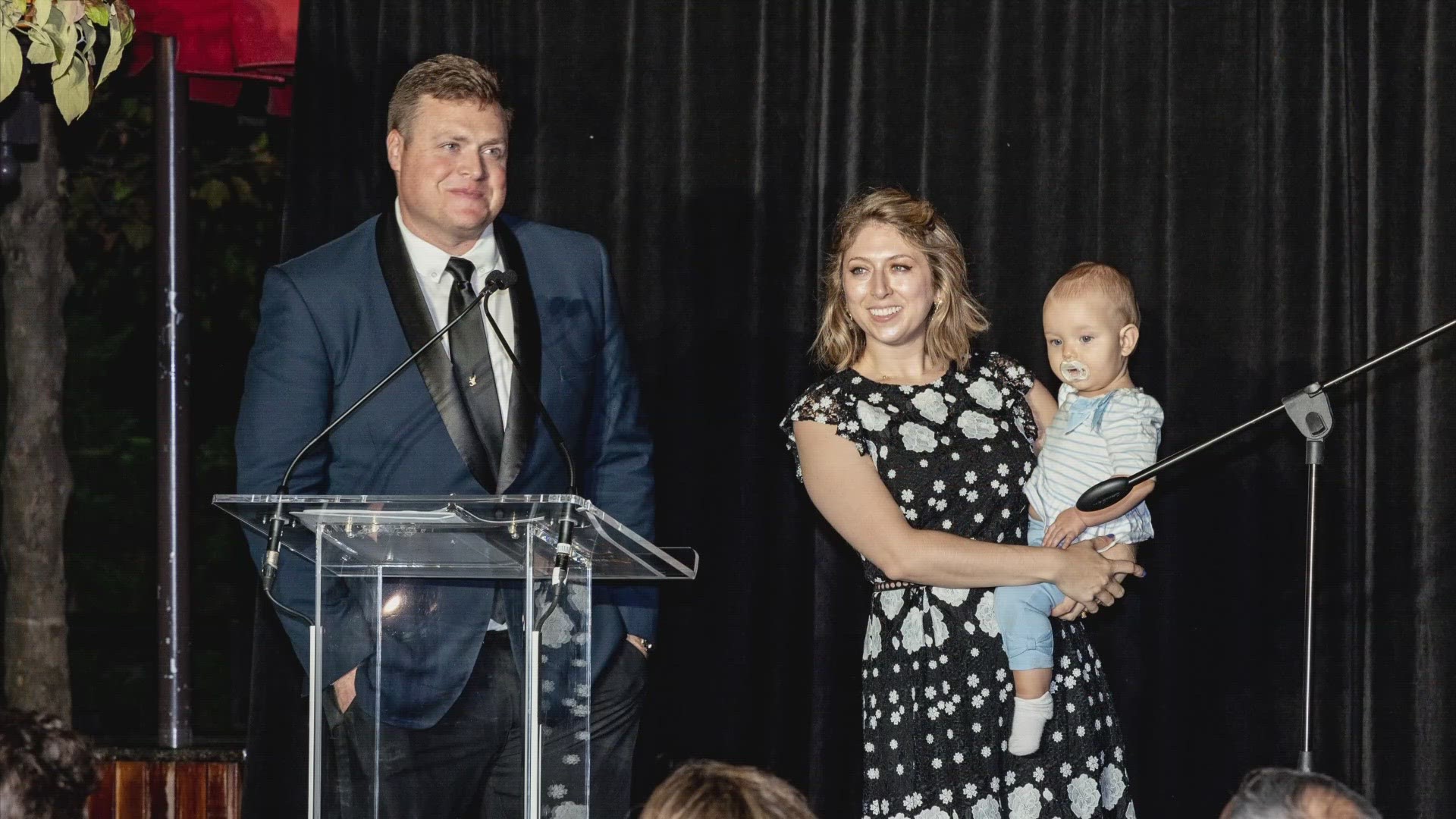DALLAS — We asked Texas Department of Family and Protective Services Foster and Adoption Recruitment Supervisor LaQueena Warren to answer some common questions related to foster care.
Here's what she had to share with us!
How do I get started in becoming a foster parent?
You must become licensed to foster.
How do you get licensed to foster?
Information Meeting
You will need to attend an information meeting in your area where you can discuss the scope and requirements of being a foster or adoptive parent.
You will get basic information and questions are welcome. Your local DFPS office will furnish you with this information if there are no informational meetings in your area. You do not need an appointment. Find free foster care and adoption information meetings in your Texas area.
Preparation and Selection
If you can meet the basic requirements, you are invited to meet with DFPS staff to decide if fostering or adopting is right for your family. You will also be assessed by DFPS staff. This process furnishes you with information about DFPS and the children who come into the foster care system.
Training
You will attend training (PRIDE) to learn more about the children available through DFPS and to assess your strengths in parenting children. The classes also boost your knowledge and confidence to meet the challenge of taking children into your home and to be sure you are ready to follow through on the commitment.
Additional Training Requirements
The state minimum standards require that prospective foster families also complete the following trainings or certifications, which are not part of the
PRIDE curriculum:
- Universal precautions training
- Psychotropic medication training
- Certification in both First Aid and infant/child/adult CPR
State minimum standards also require that verified foster homes receive annual in-service training. Depending on the number of foster parents and the needs of the children in a foster home, the annual training requirements range from 20 hours per family to 30 hours per foster parent.
Family Home Study
A caseworker will visit you in your home. The purpose is to discuss your personal history, family interests and lifestyle, childcare experiences, the types of children you feel would best fit in your home, and your strengths and skills in meeting the children's needs.
What is PRIDE?
Child Protective Services (CPS) recognizes that 16 hours of pre-service training for foster parents is insufficient. Therefore, CPS requires potential foster parents to attend Parent Resource Information Development Education (PRIDE) as part of the family’s required pre-service training. Texas PRIDE is a 35-hour competency-based training program that is co-trained by an agency staff member and a foster or adoptive parent. PRIDE provides prospective foster families with base knowledge of information on caring for children in the child welfare system. PRIDE covers topics such as child attachment, loss and grief, discipline and behavior intervention, effects of abuse and neglect, sexual abuse, working with the child welfare system, and the effects of fostering and adopting on the family. Through collaborative efforts with the Texas Alliance, a statewide advocacy organization that represents many private CPA’s in Texas, DFPS has made PRIDE available to private CPA’s.
What resources are provided to foster parents?
Here is a foster family resource directory.
How does placement with siblings work?
CPS makes every effort to ensure siblings are placed together in aims to keep them connected. If it is not possible to place siblings in the same home as their siblings, they will be placed with caregivers who will support frequent sibling contact and visits.
What are other ways to help if you aren’t able to be a foster parent?
Join CarePortal and Adopt-A-Family
These programs help connect the faith community with children and families who have vital needs. The caseworker sends a request based on the family’s needs. The goal is for congregations to help meet needs of the families in their community.
Donate to a Local Rainbow Room
This is where caseworkers go to get supplies for children who are victims of abuse or neglect. Congregations can contribute clothing and personal items, volunteer to collect or sort donations, or donate space for a Rainbow Room.
Participate in Blue Sunday and Stand Sunday
Blue Sunday is the National Day of Prayer for Child Abuse and Neglect held in April. CPS asks congregations to pray for abused and neglected children and learn ways they can help them. Stand Sunday, which is in November, asks faith communities to stand and raise awareness about children in foster care and learn ways to support them.
Help the Heart Gallery
Volunteers help take and display portraits that show foster children’s amazing spirits and individuality. Congregations can display the Heart Gallery photos periodically throughout the year. These wonderful pictures have helped many children find loving homes.
Provide Respite Care
Become a “respite provider” to temporarily care for children in foster care. Respite care gives families and caregivers a much-needed break while offering a safe environment for their children.
Offer Babysitting or Parents Night Out
Start a ministry that provides babysitting for current foster or adoptive parents within the community. Bring volunteers together to watch and care for children for a certain amount of time to give parents a break.
Be a Mentor
Create a mentorship program that connects people who have specific skills and knowledge (mentors) with youth in CPS care. This helps break down barriers, creates opportunities for success, and increases self-esteem.
Start a Foster/Adopt Ministry
Within your own faith community, put forward a call to recruit families to foster and adopt and to provide support to families that already do.
Become a Court Appointed Special Advocates (CASA) Volunteer
These dedicated volunteers provide a voice for abused and neglected children who are going through the difficult legal process. CASA volunteers receive training on trauma, child welfare, the court system, and cultural competency.
Have a Party or Event
Host a holiday party, birthday party, or picnic with food and drinks for foster and adoptive children and their families. Having a party for a special occasion gives you a “hands-on” experience and helps children and families in need.
Click here for a list of foster and adoption agencies in Texas.



